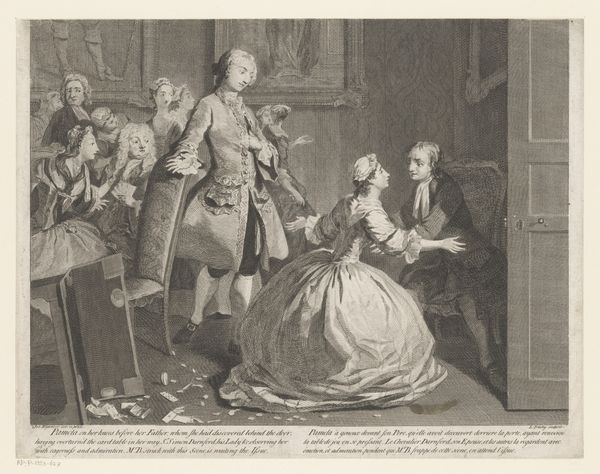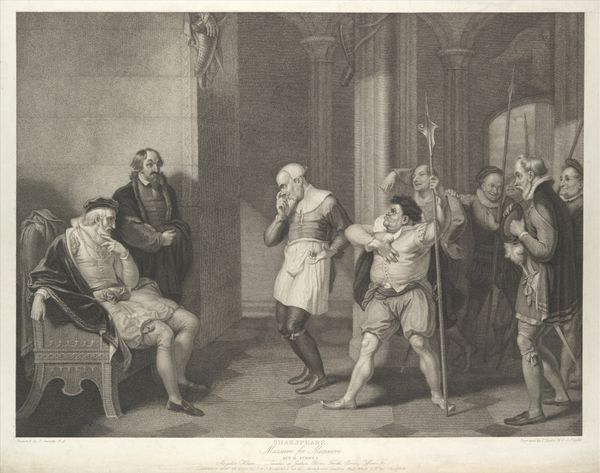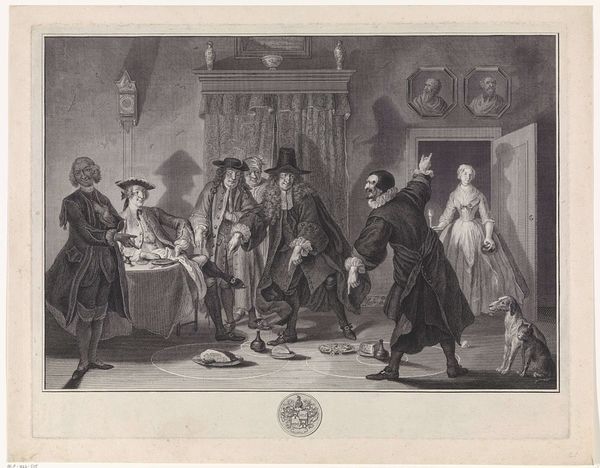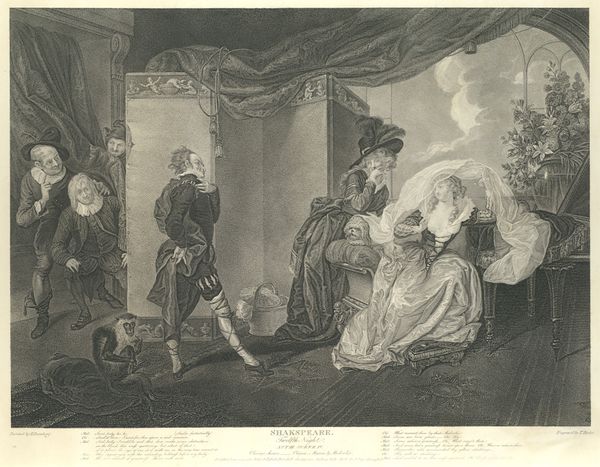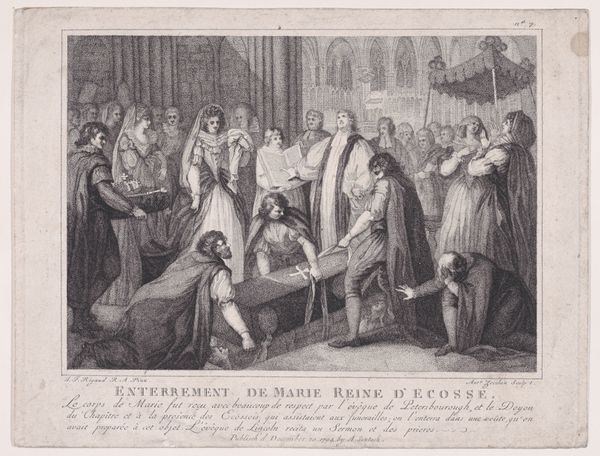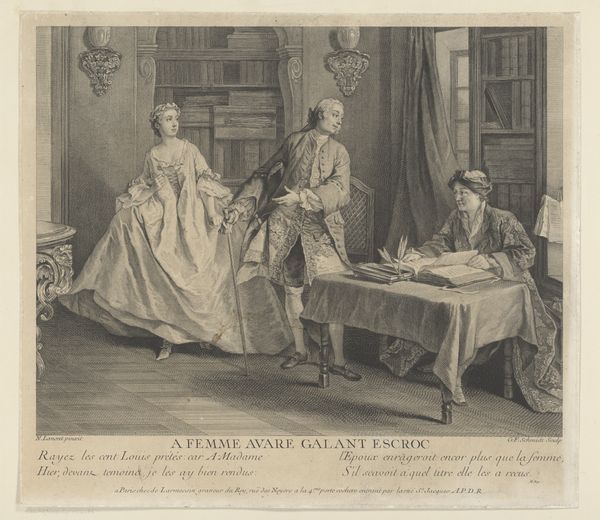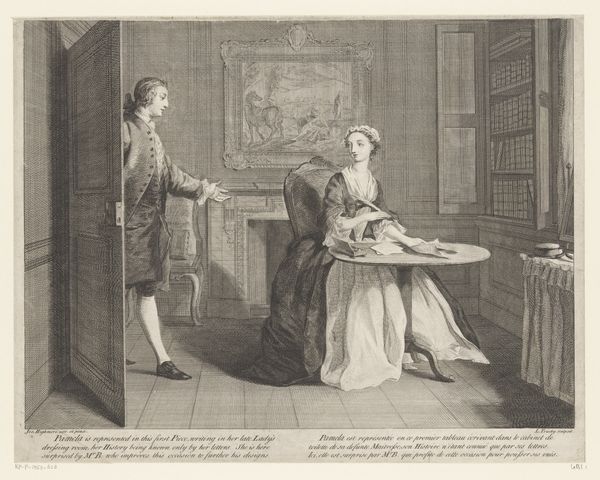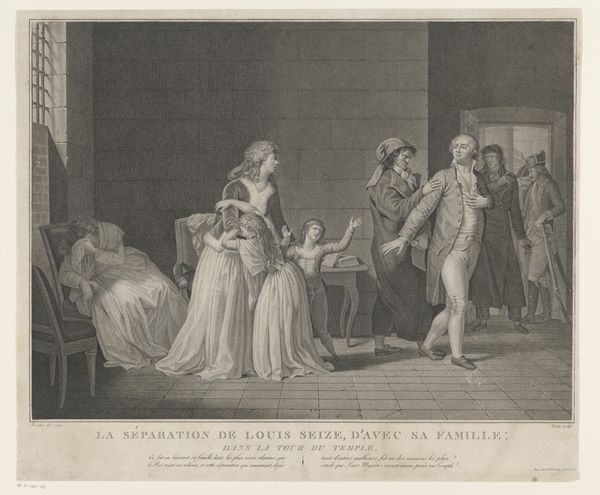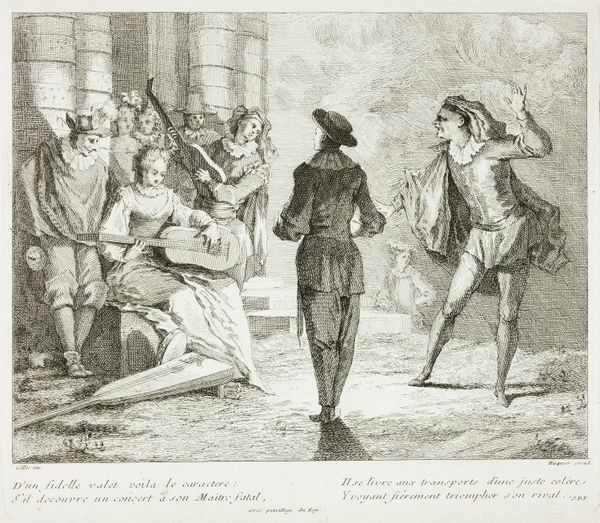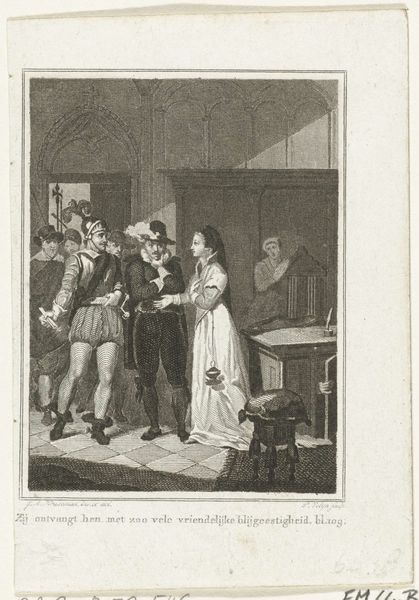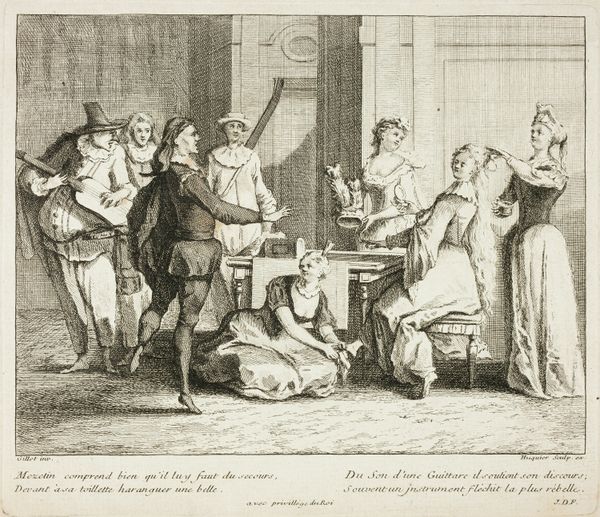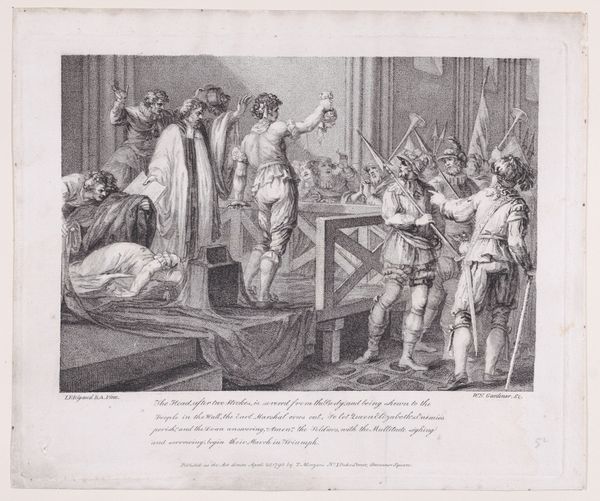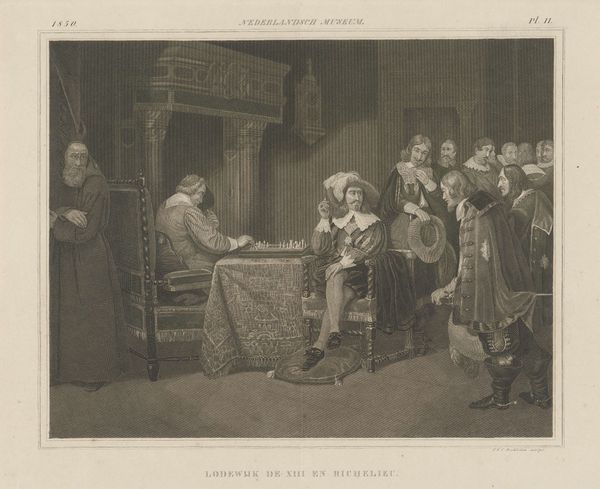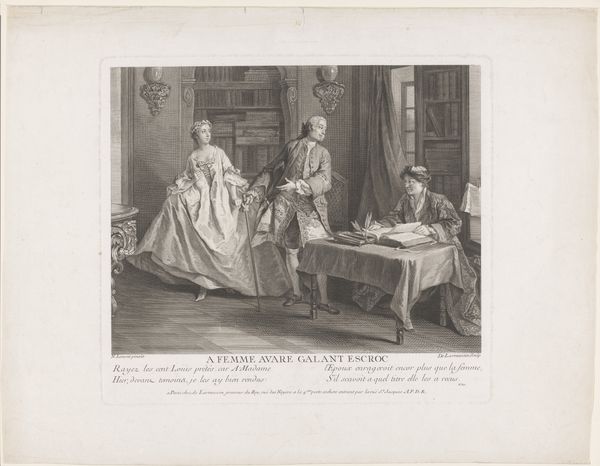
print, engraving
#
portrait
#
narrative-art
#
baroque
# print
#
genre-painting
#
engraving
Dimensions: height 289 mm, width 368 mm
Copyright: Rijks Museum: Open Domain
Editor: So, we're looking at "Huwelijksceremonie" – that's "Marriage Ceremony" – an engraving by Antoine Benoist from somewhere between 1731 and 1770. It’s a surprisingly intimate scene; not what I’d expect from a marriage depicted back then. How do you interpret what’s happening socially and historically in this artwork? Curator: It’s interesting that you find it intimate. In many ways, this image reflects the public role marriage played within 18th-century society. Though it depicts a personal union, marriage was fundamentally a political and economic transaction, structuring inheritance and social standing. Editor: That’s a bit… cold, isn’t it? The couple seems so demure. Is it just the style? Curator: Precisely. The demure posture aligns with societal expectations, and engravings like these served as visual scripts, reinforcing specific ideals about family and gender roles for the viewing public. Notice the furtive figure by the door – are they sanctioned attendees or someone peeking where they shouldn’t be? Editor: Good point! It complicates things. Makes me wonder about class dynamics here. Is this print intended for a specific audience? Curator: Almost certainly. Engravings were more accessible than paintings. Disseminating these scenes meant broadening the reach of these social scripts. This could be about normalizing and spreading particular ideologies and behaviors related to marriage beyond just the elite. But what kind of messages were they meant to understand? Editor: I didn't realize an engraving could pack so much social commentary! Curator: It shows how even seemingly straightforward genre scenes are embedded in a larger matrix of social, political, and visual culture.
Comments
No comments
Be the first to comment and join the conversation on the ultimate creative platform.
